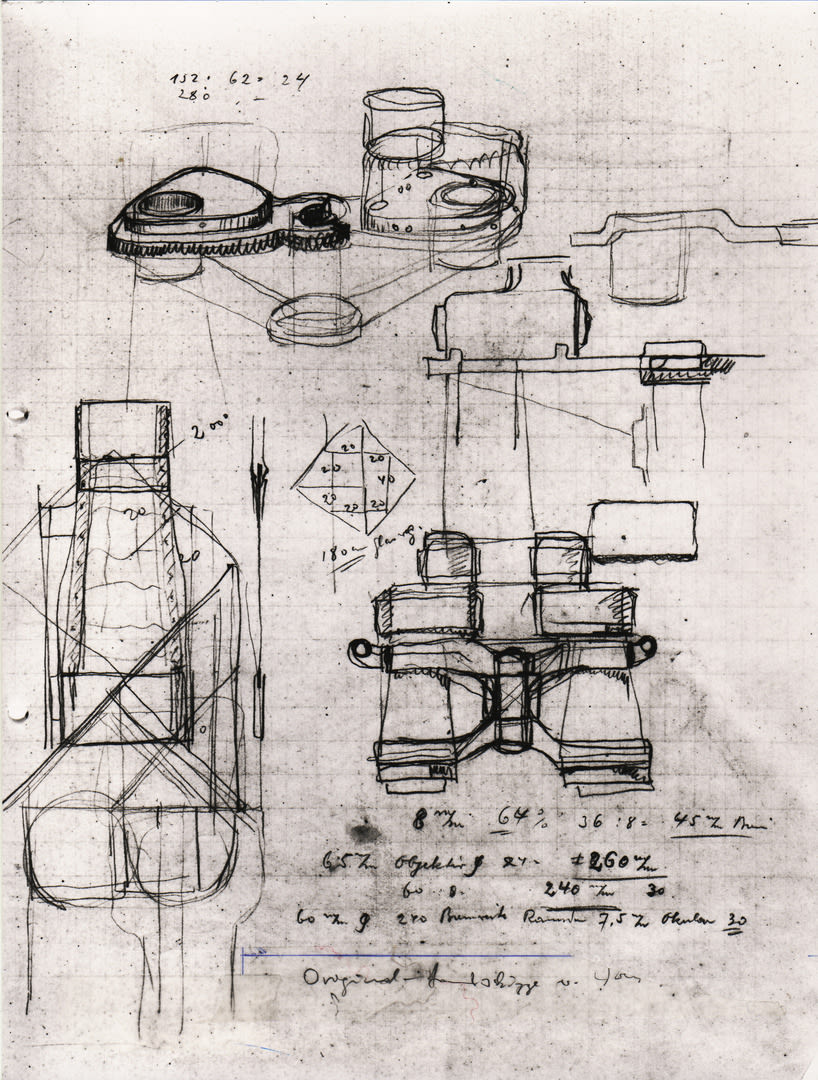
1949: The Founding of SWAROVSKI OPTIK
To be closer to the stars
In 1935, Wilhelm Swarovski, son of the original founder, was 17 years of age. Already an avid hobby astronomer, Wilhelm’s passion “to be closer to the stars", as he himself described it, awakened his ambition to build his own, improved binocular. With access to the specialized glass production and finishing technologies already used to manufacture jewelry stones in his father’s factory, Wilhelm managed to develop a novel prism fabrication and grinding process that he applied in constructing his first 6x30 binocular. Wilhelm went on to found SWAROVSKI OPTIK KG in Absam, Tyrol, in 1949 thus laying the foundation stone for a sport optics company with a global reputation. Wilhelm was closely connected with SWAROVSKI OPTIK throughout his life. In 1957, at the age of 69, he initiated the establishment of a regional vocational school for precision opticians and optometrists with an attached boarding school in Hall, where students from 7 federal states were taught. After a fulfilling life, Wilhelm died in Merano on April 2, 1962 at the age of 75.
Any kind of lasting success can only be achieved when you strive to think first about your fellow human beings and then about yourself. Blessings await whenever you put others first.
Wilhelm Swarovski
Stories from the archive
The desire for perfection and the joy of experimentation
Wilhelm, the eldest son of Daniel Swarovski, was enthusiastic about the natural sciences and keen to experiment like his father. What gave him the idea of constructing binoculars and finally establishing Swarovski Optik in Absam?
Since its foundation in 1949, SWAROVSKI OPTIK has become one of the world’s leading manufacturers of high precision sport optics for hunters, birders and nature enthusiasts.
Read more about our innovation history
Beyond the Limit
The Yearning to be Able to See into the Distance
The human desire to see clearly beyond the limits of the naked eye and to be able to see into the distance is as old as humanity itself. In no small part, it was a fascination for the stars and planets that led to the development of mathematics and geometry in the days of antiquity. Early in the modern age, these principles were applied to the lens systems used in the very first telescopes. Most notably the first simple lens systems were built by the Italian astronomer Galileo Galilei and his Austrian counterpart Johannes Kepler. Today, binocular optics are still based on Kepler’s invention of 1611. Frequently regarded as merely a convenient, everyday device, this instrument born out of humankind’s reach for the stars in fact made the age-old human dream of achieving a near-to godlike power of vision a reality.
Evolution never ceases. Reforms in one area lead to further reforms in other areas. One must, however, always be alert to the opportunities.
Daniel Swarovski
Establishig the family-owned company in Tyrol
The Hour of Swarovski’s Birth
The story of Austrian entrepreneurial history began in 1895 when, after inventing the world’s first electric grinding machine for jewelry stones, Daniel Swarovski established the family-owned company in the province of Tyrol. Since then, the name Swarovski has become synonymous worldwide with clearest crystal, precision grinding and a brilliant spirit of innovation, as the original enterprise continued branching out into additional lines of business. Today, the companies of the Swarovski Group supply the world with polished jewelry stones and crystal products, grinding and cutting tools, as well as sports optics. Even if at first glance the product range seems quite diverse, all companies in the Group share an important unifying link, namely the formidable production and engineering knowledge that has grown out of the Swarovski family’s quest for ever higher precision.

The first optical products by Swarovski
What happened before the company's founding in 1949?
Before SWAROVSKI OPTIK was founded in 1949, Swarovski's glass processing expertise was utilized in the late 1930s and early 1940s to produce binoculars (Dienstglas Doppelfernrohr DF 6x30) for the German military.
The entire Swarovski group believes in transparency and the importance of being aware of history. While we cannot eradicate history, we can make sure that we learn from it, ensuring that our actions today are a force for good and drive positive change.
Detailed information about the development of the Swarovski business and its role throughout history can be found on the Swarovski website.















